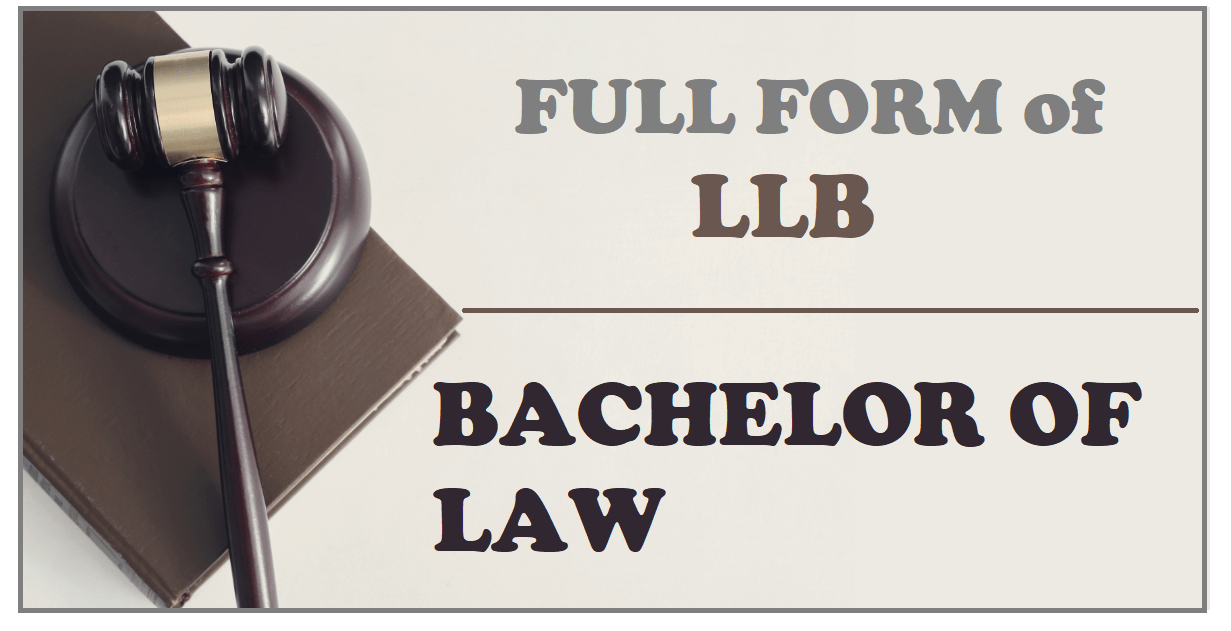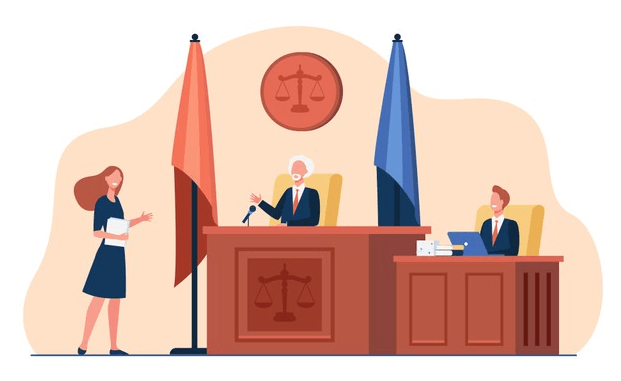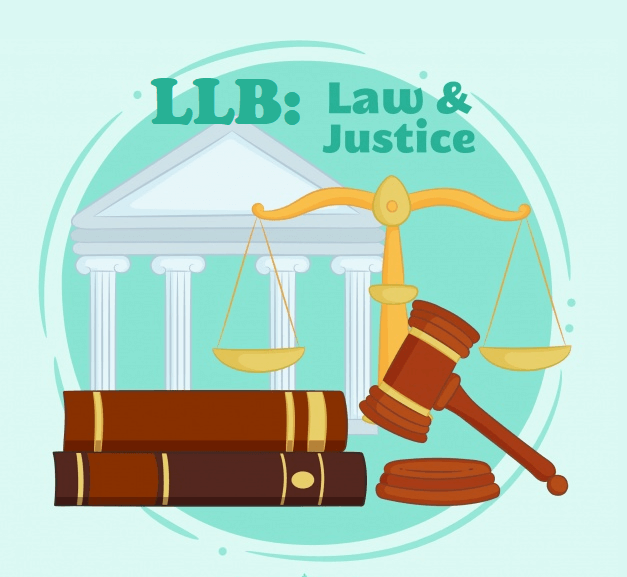Full Form of LLB
Full Form of LLB
Lawyers and courtroom drama are appreciated worldwide. We all know to become a barrister or lawyer, one needs to study LLB, but do you know what LLB stands for?
The full form of the abbreviation LLB is Bachelor of Laws.

This tutorial will briefly cover about the definition, eligibility criteria, overviews, career options and other detailed information about the LLB or Bachelor of Laws.
What is LLB?
LLB or Bachelor of Laws is a 3 years undergrad program specialized in law for students who want to pursue a career in the legal field. The term LLB initially originated from the Latin language, which means 'Legum Baccalaureus'. After the end of the course, a judicial license is conferred to its pursuers. The law course can have regional, global, and worldwide aspects.
The LLB degree is introduced to attain jurisdiction expertise, draw more light in various lawmaking scenarios and understand every law inch. LLB pursuers have ample career fields to explore, including various industries like Law corporations, MNCs, Government Agencies, lecturers, etc. The course is for three years, strengthening skills like making decisions, communication, and judgment.

The overviews of LLB or Bachelor of Laws are as follows:
| Duration | 3 years |
| Subjects | Criminal LawFamily LawInternational LawCyber LawCorporate Law |
| Jobs | LawyerAdvocateParalegalLaw officerLegal AssociateCorporate LawyerLecturer |
| Salary | 4 to 6 LPA |
| Eligibility | Graduation degree |
| Admission | Through entrance examBased on merit |
Career Options after LLB
After completing the Bachelor of Laws, you can select any one of the following career options:
- Government or Private lawyer: The first career option the LLB pursuers opt is lawyer. Lawyers are essential part of our constitution as they help people to get justice in the court of law.
- Legal advisors: The individuals get associated with corporations as their legal advisor to advise them about their core and external clients and consultants on exclusive legal concerns and other regulatory expansions.
- Legal associates: They help the lawyers coordinate with the clients, comprehend their legal necessities, and frame them.
- Legal Counsel: They work with Law firms (associate) and guides for the important client of the corporation with different legal terms and conditions
- Public Prosecutor: To work as a solicitor general or public prosecutor or offers services to government agencies, Banks, Legal departments
- Lecturer: After LLB, students who have interest in teaching can join any university as lecturer. They are responsible to teach the LLB pursuers and cover the law course syllabus in a college or university.
- Legal Administrator: Legal Administrator assists the lawyers in the process of documentation and other legal activities.
Admission Process of LLB

LLB students are usually selected by going through special entrance exams. But some universities grant admission based on Student' merit as well. Following are the admission process through which LLB students are selected:
- Merit-Based: Colleges release their cut-off list, and if any student matches or falls under the criteria, then they become eligible to take admission in the specified college for the LLB course.
- Entrance-Based: Many top LLB colleges organize LLB entrance exams like TS LAWCET, AP LAWCET, DU LLB, SET SLAT, etc. Students clearing the exam are only eligible to take admission in the college.
Course Comparison
| Fields | LLB | BA LLB | BBA LLB |
| Stands for | LLB stands for Bachelor of Legislative Law | BA LLB stands for Bachelor of Arts, Bachelor of Laws | BBA LLB stands for Bachelor of Business Administration, Bachelor of Laws |
| Definition | Bachelor of Legislative Law includes the overall aspects of law, its legal studies and research throughout the course. | BA, LLB is a professional integrated law program pursued by students who want to study the arts and simultaneously pursue a law career. | BBA, LLB is an integrated course that allows the students to master both business administration and law subjects. |
| Subjects | Criminal LawFamily LawLegal Writing Constitutional LawLegal Methods Jurisprudence | General EnglishGeneral SociologyGeneral Philosophy Core law subjects | General EnglishManagerial AccountingPrinciples of ManagementBusiness Communications Core law subjects. |
| Eligibility | The candidate must score 45% or above percentile in the higher secondary or class XII education. | The student must score a minimum percentile of 45% in higher secondary (class XII board) | The aspirant must have graduated 10+2 with Commerce stream. |
| Duration | 3 years degree | 5 years | 5 years |
| Annual Salary (in INR) | INR 4 to 6 LPA | INR 2.5 to 4 LPA | INR 4.5 to 8 LPA |
Syllabus of LLB

Law is recognized as a detailed and tough program as it includes many issues from several LLB subjects like Administrative Law, etc. The candidate must experience several seminars, mood court sessions, training under a lawyer or a legal firm and internships during the course.
The following table includes the detailed list of subjects pursued in the 3 years of LLB:
| Years of LLB | Syllabus as per Year | |
| Year 1 | Labor LawFamily Law ICrime and CriminalsWomen & LawFamily Laws IILaw of Tort & Consumer Protection ActConstitutional LawProfessional Ethics | |
| Year 2 | International Economics LawHuman Rights & International LawJurisprudenceHuman Rights & International LawArbitration, Conciliation & AlternativeProperty Law (the transfer of Property Act and power of atony)Law of EvidencePractical Training - Legal Aid | |
| Year 3 | Civil Procedure Code (CPC)Land Laws including ceiling and other local lawsAdministrative LawCode of Criminal ProcedureCompany LawInterpretation of StatutesPractical Training - Moot Court Practice and DraftingAdministrative LawLegal Writing |
Frequently Asked Questions/ FAQ’s
Question 1: What is CLAT? Is it mandatory to clear CLAT to take admission to LLB degree?
Answer: CLAT or Common Law Admission Test is a national level entrance examination conducted to filter out students for undergraduate (UG) and postgraduate (PG) law programs at 21 NLUs and other colleges/ universities.
No, it is not required to clear the CLAT examination to take admission to LLB degree as it is conducted only for taking admissions five-year LLB courses and LLM course.